Phobia, directed by Pawan Kripalani, is quite a sophisticated horror film as compared to other Hindi films in the genre. The film is the story of an artist Mehak (Radhika Apte), who after being assaulted by a taxi driver, suffers from agoraphobia—a fear of open spaces. Her friend Shaan (Satyadeep Mishra) makes her move to a new apartment so that she can get treated. The apartment building is full of weird and creepy people. Mehak starts seeing an apparition, which she thinks is of Jiah, the earlier tenant who used to stay there. However, the reality is far more complicated, and nothing seems to be what is expected.
Phobia opens with a quote by the great writer Franz Kafka—A cage went in search of a bird. The quote is from Zürau Aphorisms, a collection of aphorisms of Kafka, published by his friend Max Brod, after Kafka’s death. Philosophers have interpreted the quote to be related to the themes of freedom and existentialism. In Phobia, Mehak is suffering from agoraphobia where she fears open spaces, and prefers to stay indoors. She is like a bird trapped in a cage, unable to fly out. Once she moves to the new apartment, she has become caged. Thus, Kafka’s quote is befitting to some events in Mehak’s life. Not only are the quote, all through the film, there are bird-related symbols. At one point, we see that the tattoo on Mehak’s nape is that of a bird. The door of the apartment has a statue of a black bird on it. Mehak’s entire apartment is filled with decorative items with birds on them. Whether it is the paintings on the wall, or the plates in the kitchen, or the showpieces in her bedroom, everything has birds, giving a clear indication of the state of Mehak as a caged bird. At some point during the end, Shaan tells her that her fight is with herself, “Tumhari ladai khud se hai.” The film, thus, is the story of Mehak where she has to fight her inner demons to get freedom from this cage. It is no coincidence that the film ends on Diwali, a festival that celebrates the victory of Ram over Ravan, the king of demons.
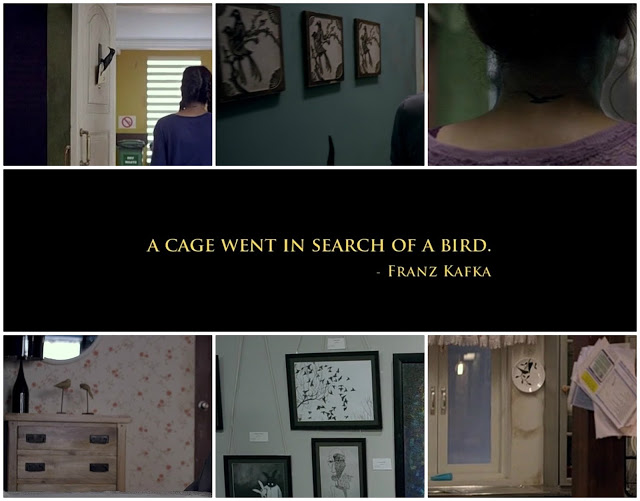
Birds in Mehak’s Apartment
In an unrelated context, Zoya Akhtar’s Luck By Chance had a similar thing with everything in Sona Mishra’s apartment related to birds as well. The shelf contained birds, pigeons, and parrots. The walls had paintings of birds. In a scene before the Baaware song, Sona and Nikki Walia are sitting together, with shiny birds in front of them. At some other point, Vikram comes to Sona’s apartment and picks up a bird that had fallen off. He is also wearing a shirt with a bird on it. When Vikram meets Shah Rukh Khan later, he is again wearing a shirt with flying birds on it. Though the context in Luck By Chance is entirely different from Phobia, the underlying theme of flying away from your struggles is there in both the films.
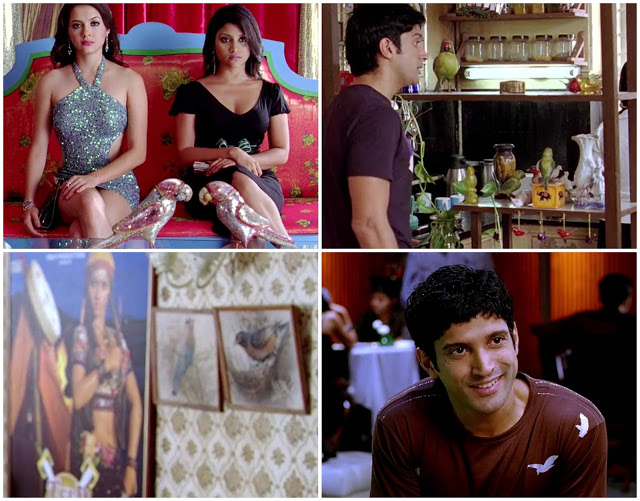
Birds in Luck By Chance
At some stage in the film, the psychotherapist tells Mehak, “Tumne jo kuch bhi dekha, sirf tumhara bhram hai. Tumhare andar reality aur imagination ke beech jee tod ladai chal rahi hai.” Whatever she has seen, it is an illusion. There is a fight between reality and imagination in Mehak’s mind. The thing to note about this conversation is that that the psychotherapist is herself using a technique related to imaginary reality—virtual reality— to treat Mehak; a method in which the person imagines that she is in a different world. It is this part for which I am struggling to come up with a rational explanation. For instance, note the scene when Mehak wears the virtual reality headset for the first time. When she is at the grocery store, the first thing we see is a poster of Spiderman. When she takes off the headset, her sister’s son Joey is also wearing a Spiderman mask. When Mehak is asked to wear the headset for the second time, she visits a mall. In this second time, too, the first thing we see in the mall is a boy walking away with a Spiderman balloon. Clearly, the appearance of Spiderman in both the instances is not a coincidence. At other moments in the film, there are spiders creeping up the paintings in Mehak’s apartments. When Nikki comes back from Manu’s place, she says there were too many spiders under his bed. Perhaps, the film is trying to blur the boundaries between reality and imagination by using the same elements in both the cases. Someone could have a more lucid explanation but there is some implicit point that the film is trying to make by using virtual reality. Mehak does not need any virtual reality therapy because she can already experience another virtual reality in which she can see the future.
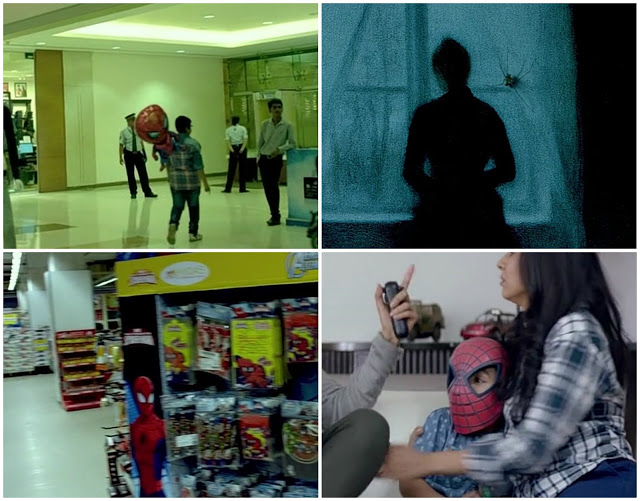
Spiderman and Spiders
There are a lot of other details for trivia collectors in the film. The apartment where Mehak stays has the nameplate belonging to Kripalani; no surprises there as the film’s director is Pavan Kripalani. The apartment building is called the Overlook Apartments, a tribute to the Overlook Hotel in Stanley Kubrick’s The Shining. When Nikki comes to meet Mehak, she is wearing a shirt that has Bhoot Raja Bahar Aaja written on it. The paintings in Mehak’s apartments are, actually, famous paintings. There is Christina’s World by Andrew Wyeth. The opening scene of Quentin Tarantino’s Inglourious Basterds was a tribute to this painting. Other notable paintings in her apartment include paintings by artists Vilhelm Hammershoi and Roy Lichtenstein. At some other point, Shaan mentions a list of notable celebrities suffering from agoraphobia, which includes people, such as Woody Allen, Sigmund Freud, and Paula Dean. He is about to mention an Indian name but we never get to hear it. I could not find any Indian celebrity suffering from agoraphobia, except possibly Parveen Babi, who locked herself in her last days; though to be fair, she was suffering from schizophrenia. Another interesting thing was the film opens with an exhibition of Mehak’s paintings and there is a biography of her. In that she says, her husband asked her to try painting, though we never get to hear any background about him in the film.
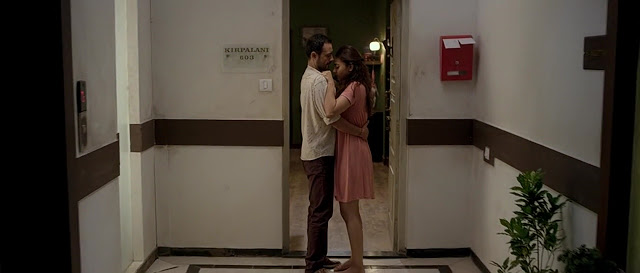
Kirpalani—Director
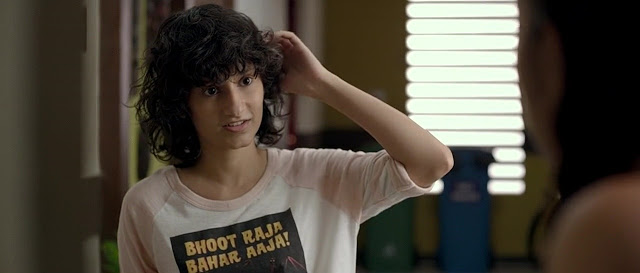
Bhoot Raja Bahar Aaja
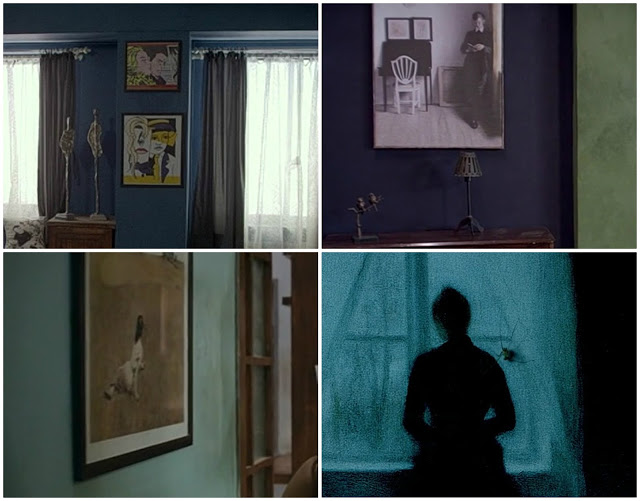
Paintings by Andrew Wyeth, Vilhelm Hammershoi, and Roy Lichtenstein
Phobia has some chilling moments. It combines conventional tropes of the horror genre with certain new elements, with a strong feminist subtext. It is also quite futuristic in the sense that some of the concepts in it were seen later in films, such as Arrival (the ability to see the future), and House of Cards (virtual reality therapy). It deserves to be seen, if nothing, then, for the exceptional performance of its lead actress, Radhika Apte, who is brilliant in every scene.
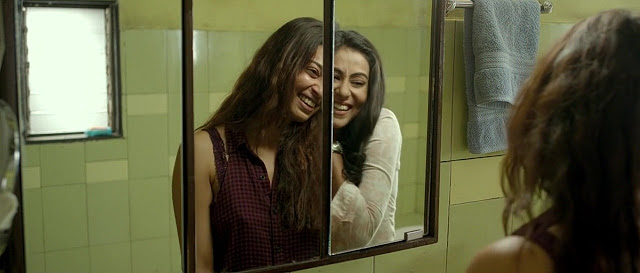
[Read more of the author’s work on his blog here]

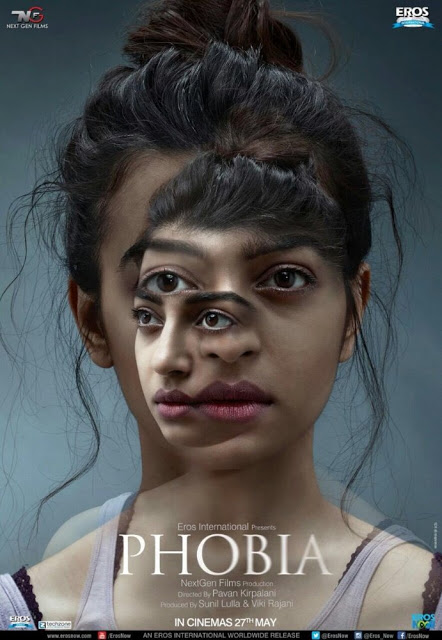




Leave A Comment
You must be logged in to post a comment.